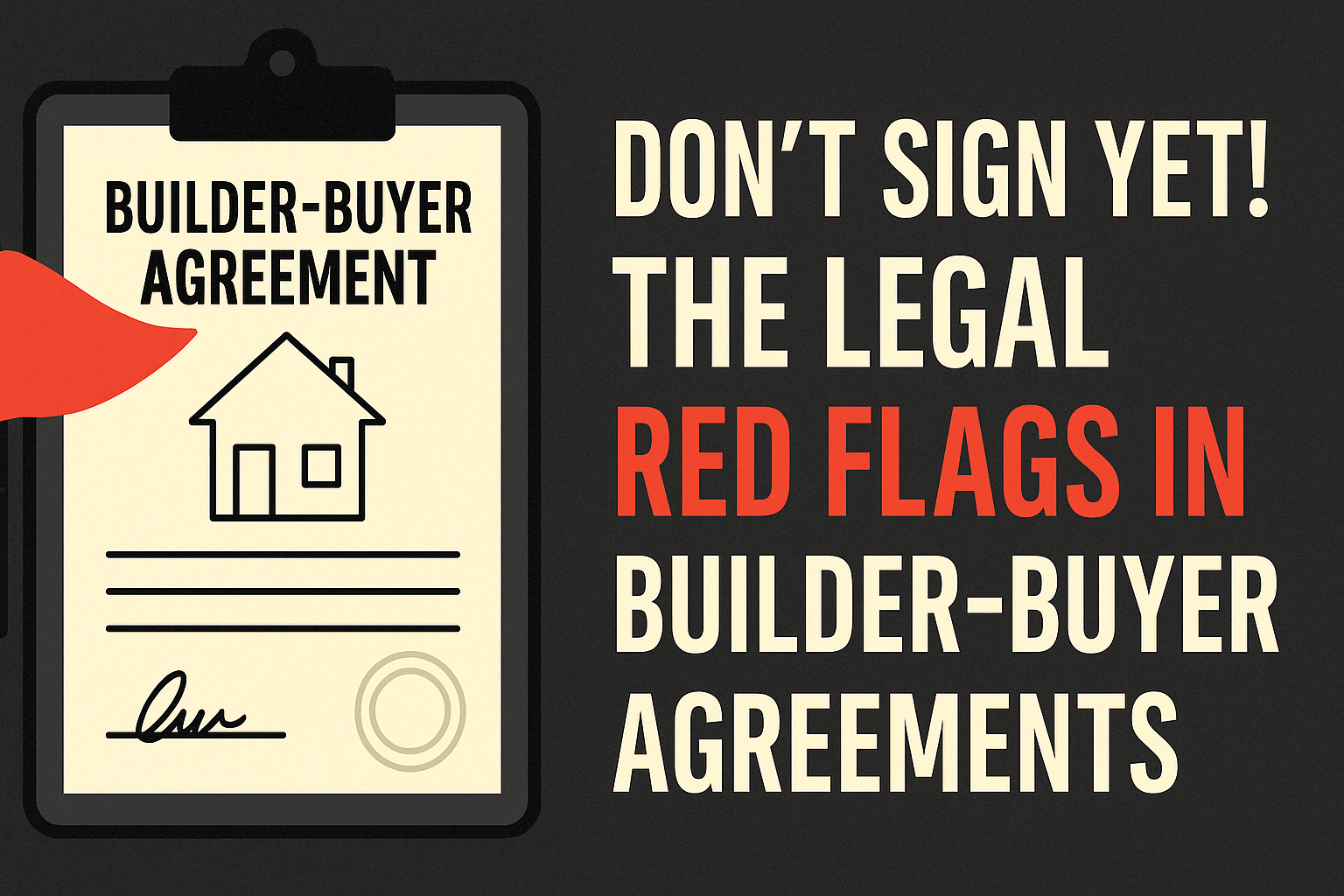
November 03, 2025
Understanding Builder–Buyer Agreements: Rights and Red Flags
Builder–buyer agreements (also called builder–contractor agreements, construction sale agreements or agreements for sale in real estate) sit at the heart of every new-build home or development project. They spell out who does what, when, how much, and what happens if things go wrong. For buyers they’re often the first legally binding document they sign in the purchase of an under-construction or newly built property — so understanding the rights they preserve and the red flags they hide is essential.
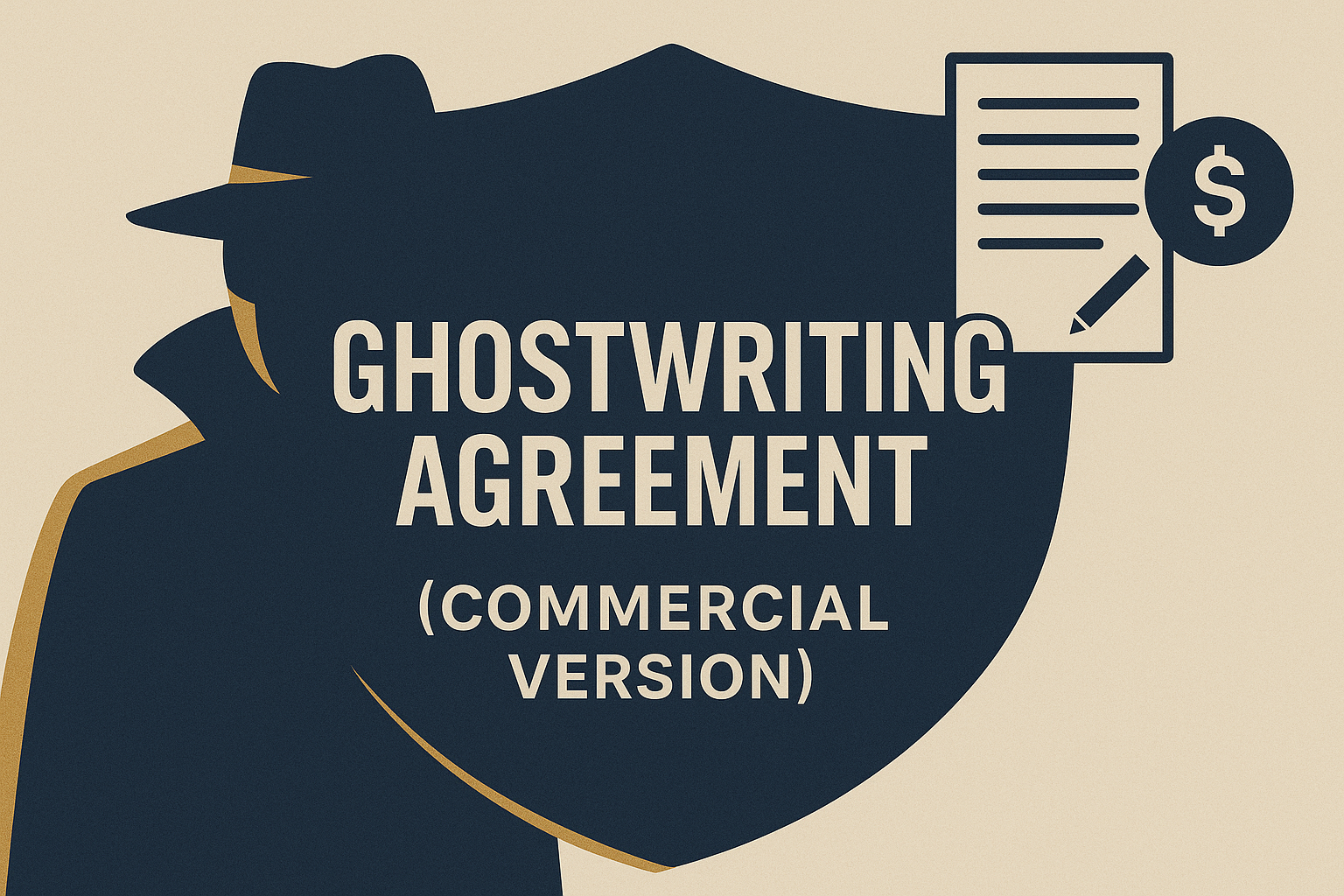
November 01, 2025
When Your Words Aren’t Yours: Decoding the Ghostwriting Agreement
In the publishing, marketing, and creative industries, ghostwriting has become a cornerstone service—where skilled writers bring someone else’s vision to life while staying behind the scenes. Whether it’s a memoir, brand book, blog series, or corporate whitepaper, ghostwriting is as much a business transaction as it is a creative collaboration.
That’s why a Ghostwriting Agreement (Commercial Version) is essential—it protects both the writer and the client, ensuring clarity over ownership, payment, confidentiality, and credit.
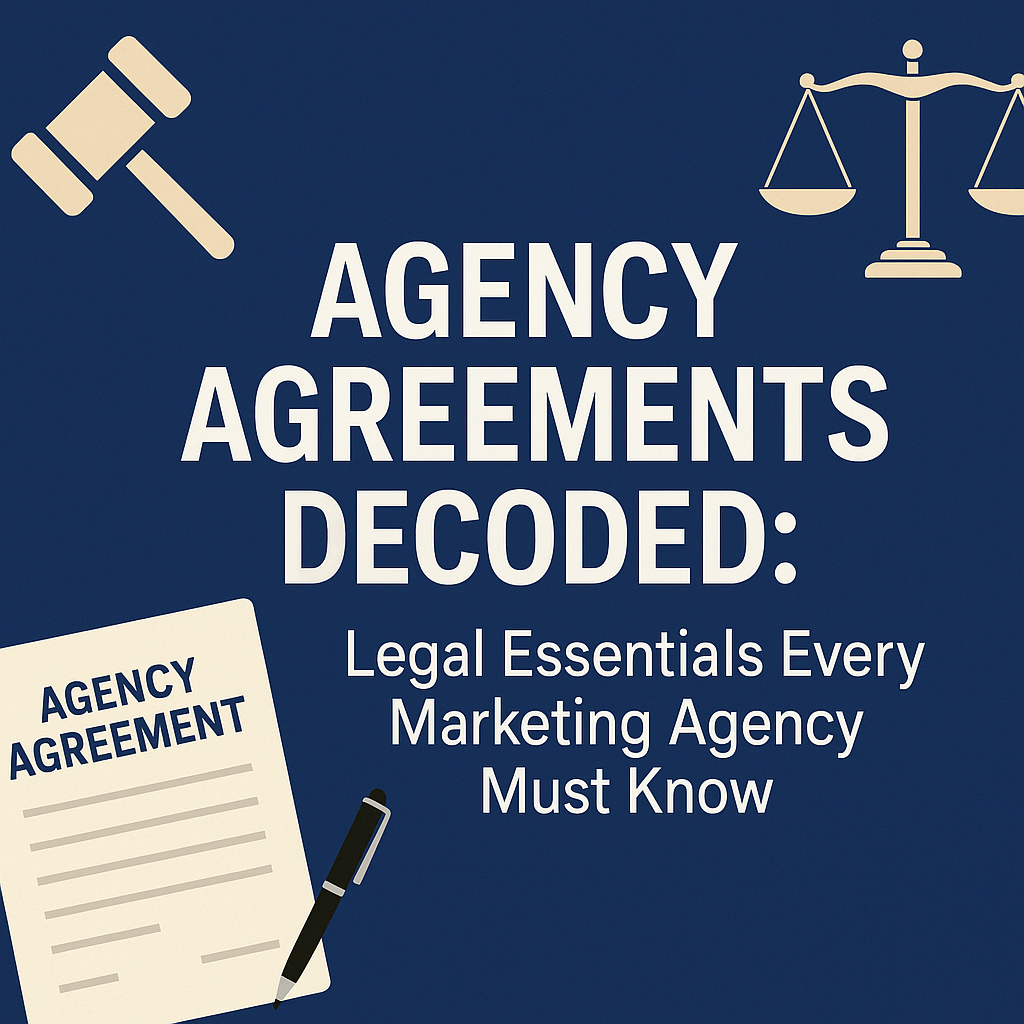
October 31, 2025
Agency Agreements Decoded: Legal Essentials Every Marketing Agency Must Know
Mastering Agency Agreements: What Every Marketing Company Should Know
An agency agreement is the backbone of any relationship between a marketing company and its client. Get it right and you create clarity, predictable cashflow, and a framework that protects your creativity. Get it wrong and you’re exposed to scope creep, unpaid work, ownership disputes, regulatory risk, and awkward client exits. This guide walks you through everything a marketing agency needs to know — from core clauses and commercial models to negotiation tips, red flags, and practical clause examples you can adapt.
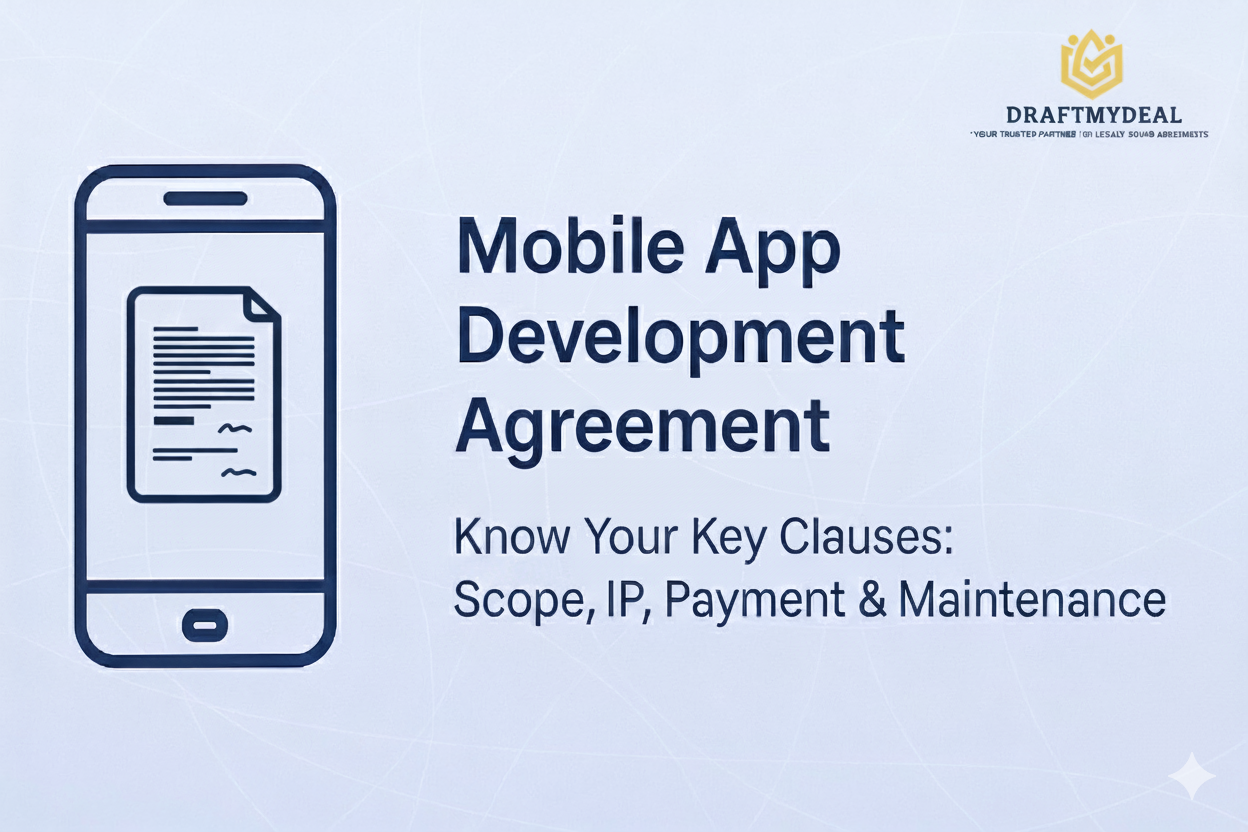
October 30, 2025
Mobile App Development Agreement – Building Apps with Legal Clarity
In today’s digital economy, businesses across industries are leveraging mobile applications to connect with customers, streamline operations, and expand their digital footprint. However, behind every successful app lies not just great code but also a well-drafted Mobile App Development Agreement—a legal blueprint that defines the rights, responsibilities, and expectations between the client and the developer.

October 27, 2025
Contracts Don’t Just Begin—They End Too: Why Notice Periods and Termination Clauses Matter
Notice Periods & Termination Clauses—Getting Them Right Matters
In the world of employment and business contracts, the “termination clause” is one of the most critical yet often misunderstood provisions. Whether you’re an employer, an employee, or a contracting party, how a contract ends can be just as important as how it begins. A well-drafted notice period and termination clause not only ensures fairness but also minimizes legal disputes and protects the interests of all parties involved.

October 27, 2025
Can Someone Else Sell Your Property? The Truth About Power of Attorney
What Is a Power of Attorney in Property Deals? — A Comprehensive Guide
A Power of Attorney (POA) is one of the most useful — and potentially risky — legal tools in property transactions. Whether you’re buying, selling, leasing, or managing property, understanding how POAs work, when to use them, and how to protect yourself is essential. This post explains the concept, the types of POAs commonly used in property deals, how they’re executed and registered, common clauses, risks & safeguards, and practical checklists for both principals (owners) and agents (attorneys-in-fact).
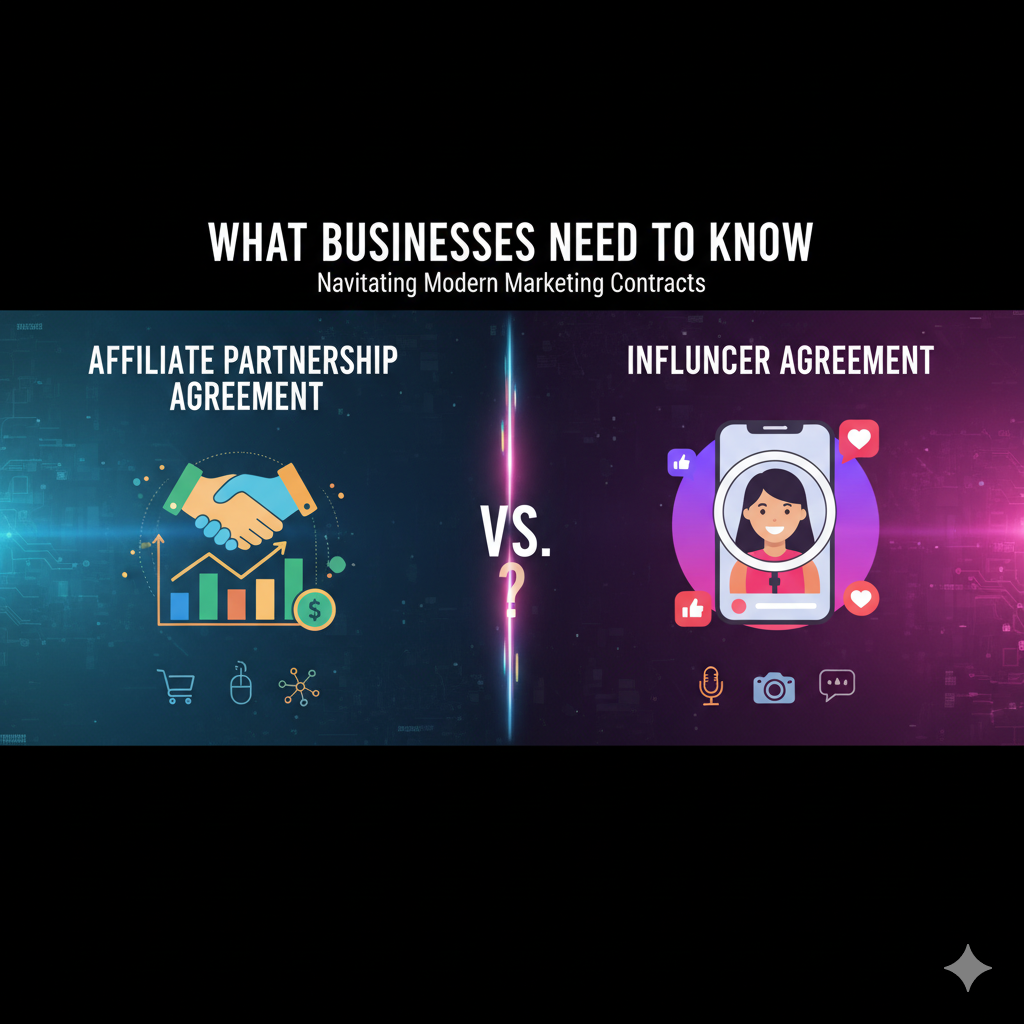
October 24, 2025
Affiliate Partnership Agreement vs. Influencer Agreement: What Businesses Need to Know
In today’s digital economy, partnerships are a crucial way for brands to expand their reach and drive sales. Two common collaboration models are affiliate partnerships and influencer agreements. While they may seem similar at first glance, the legal frameworks, responsibilities, and expectations behind each differ significantly. Understanding these differences can help businesses select the right agreement and protect both parties legally.

October 17, 2025
Marketing Contracts Unveiled: Top Disputes and Prevention Strategies for Agencies & Clients
Client-agency relationships in marketing are frequently challenged by contract disputes, but these can be substantially reduced through precise drafting and proactive management. The most common causes of conflict include unclear deliverables, ambiguity around intellectual property, payment disagreements, and mismanaged expectations. By understanding these issues and implementing best practices, both clients and marketing agencies can safeguard their interests and foster enduring partnerships.

October 14, 2025
Mastering Content Partnership Agreements: Essential Clauses and Modern Strategies
A Content Partnership Agreement (CPA) is a specialized contract that serves as the backbone of successful collaborations in today’s digital economy, where shared content strategies can elevate business value and audience reach. This agreement is especially relevant for brands, media outlets, influencers, and businesses seeking to leverage each other's content, audience, and expertise for mutual benefit. As an expert corporate lawyer, here is a comprehensive, professional, and engaging overview of Content Partnership Agreements.
